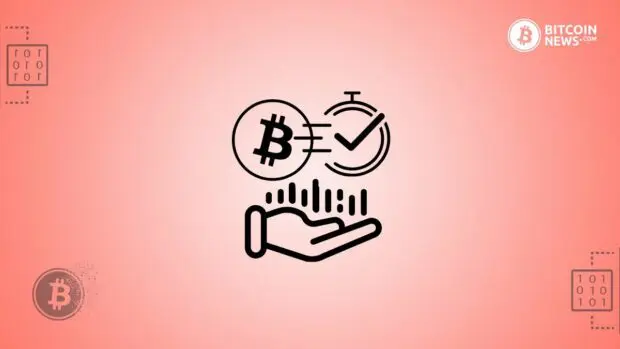Table of Contents
Before diving into the specifics of Bitcoin Perpetual Futures, let’s understand the basics of a futures contracts. In essence, a futures contract is a legally binding agreement to buy or sell a particular commodity, currency, or financial instrument at a predetermined price at a future date. Unlike the spot markets, where trades are settled instantly, futures contracts represent an agreement to trade the asset in question at a later date. This allows traders to speculate on the future price of an asset without needing to hold the actual asset.

How Futures Contracts Work
Futures contracts enable traders to speculate on the future price of an asset, like say bitcoin, without needing to own it directly. Essentially, you are agreeing to buy or sell the asset at a specified price on a predetermined date in the future.
One of the most attractive aspects of futures is the ability to leverage. Leverage allows traders to control a much larger position than their actual investment capital would permit in the spot market.
For instance, with 10x leverage, you could control $10,000 worth of bitcoin with just $1,000. This amplifies potential profits if the market moves in your favor, but it also increases the risk of substantial losses, including the possibility of losing more than your initial investment.
Leverage is a powerful tool that can significantly enhance returns. However, it is a double edged sword. Using leverage requires careful risk management and a deep understanding of the market dynamics one is trading in.
Differences Between Futures and Perpetual Futures
The main difference between traditional futures and perpetual futures is the expiration date. Traditional futures contracts expire on a preset date, requiring you to settle the position. Perpetual futures have no expiration, allowing you to keep the contract open indefinitely.
Perpetual futures also tend to track the spot price of the underlying asset more closely. They use a mechanism called funding rates to align the futures price with the asset’s spot price over time. Funding rates are periodic payments exchanged between long and short traders based on the difference between the futures price and spot price. If the futures price is higher, longs pay shorts. If it’s lower, shorts pay longs. This keeps the futures price tethered to the spot.
The lack of expiration and price alignment make perpetual futures appealing for bitcoin traders. You can maintain long or short positions without rolling over contracts. You also benefit from the leverage and liquidity of futures markets while staying aligned with Bitcoin’s spot price over longer timeframes.
To summarize:
- Perpetual futures have no expiration, traditional futures expire
- Funding rates align perpetual futures prices with the spot by exchanging payments
- Perpetual futures track spot prices more closely over time
Why Bitcoin Perpetual Futures?
- Speculation and Shorting: Perpetual futures provide a mechanism for speculating on both the rise and fall of Bitcoin prices. Traders can short Bitcoin, betting on a price decrease, which isn’t directly possible in the traditional spot market.
- Leverage: These contracts often offer high leverage, sometimes up to 100x, allowing traders to open positions that are much larger than their actual capital.
- High Liquidity: Perpetual futures markets on major exchanges tend to have high liquidity. This means traders can usually enter and exit positions easily, avoiding the slippage that can occur in less liquid spot markets.
- Hedging Volatility: For traders and businesses holding bitcoin, perpetual futures offer a way to hedge against its price volatility. Establishing short positions can help offset potential losses in a long spot position.
Risks and Considerations
While trading Bitcoin Perpetual Futures can be lucrative, it’s not without risks. The primary concerns include:
- Liquidation: If the market moves against you, and your account balance falls below the maintenance margin, your position could be liquidated, resulting in a total loss of your initial margin.
- Market Volatility: Bitcoin’s price can be highly volatile measured in fiat, which can lead to rapid and significant changes in the value of your position.
- Complexity: Understanding and managing perpetual futures requires a good grasp of the market and trading principles.
Why Holding Spot Bitcoin is Still King
Despite the allure of trading Bitcoin Perpetual Futures, many argue that holding spot bitcoin in self-custody remains the best strategy. Here’s why:
- Full Control: Holding bitcoin yourself means you’re not exposed to the risks associated with exchanges or other third parties.
- Long-Term Value: Many believe in Bitcoin’s long-term value proposition as a decentralized, global currency. Holding the private keys for spot bitcoin aligns with this long-term investment view.
- Simplicity: Owning Bitcoin outright is straightforward compared to the complexities of futures trading.
Conclusion
Bitcoin Perpetual Futures offer a compelling way to engage with the Bitcoin market, providing opportunities for leverage, hedging, and speculation. However, they come with significant risks and complexities that should not be underestimated. For many, the simplicity and long-term potential of holding spot bitcoin in self-custody continue to make it the superior choice. As with any investment, it’s crucial to do your own research and understand the risks before diving in.
FAQ
u003cstrongu003eWhat is a futures contract?u003c/strongu003e
A futures contract is a legally binding agreement to buy or sell a commodity, currency, or financial instrument at a predetermined price on a future date.
u003cstrongu003eHow do futures contracts work in Bitcoin?u003c/strongu003e
Futures contracts allow traders to speculate on the future price of Bitcoin without owning it directly, agreeing to buy or sell it at a specified price on a predetermined future date.
u003cstrongu003eWhat is leverage, and how does it apply to futures trading?u003c/strongu003e
Leverage enables traders to control a larger position than their actual investment capital. For example, with 10x leverage, a trader can control $10,000 worth of Bitcoin with just $1,000.
u003cstrongu003eWhat are the differences between traditional futures and perpetual futures?u003c/strongu003e
Traditional futures contracts expire on a preset date, while perpetual futures have no expiration, allowing traders to keep the contract open indefinitely.
u003cstrongu003eHow do perpetual futures align with the spot price of the underlying asset?u003c/strongu003e
Perpetual futures use funding rates, periodic payments exchanged between long and short traders, to align the futures price with the spot price of the underlying asset over time.
u003cstrongu003eWhat advantages do perpetual futures offer for Bitcoin traders?u003c/strongu003e
Perpetual futures allow traders to speculate on both rising and falling Bitcoin prices, offer high leverage (up to 100x), and track spot prices more closely over time.
u003cstrongu003eWhat risks are associated with trading Bitcoin Perpetual Futures?u003c/strongu003e
Risks include the potential for liquidation if the market moves unfavorably, market volatility affecting the value of positions, and the complexity of understanding and managing perpetual futures.
u003cstrongu003eHow do perpetual futures provide a hedge against Bitcoin price volatility?u003c/strongu003e
Traders and businesses holding Bitcoin can use perpetual futures to establish short positions, helping offset potential losses in a long spot position and hedging against price volatility.
u003cstrongu003eWhy do some argue for holding spot Bitcoin instead of trading perpetual futures?u003c/strongu003e
Holding spot Bitcoin in self-custody provides full control, aligns with Bitcoin’s long-term value proposition, and is considered simpler compared to the complexities of futures trading.










